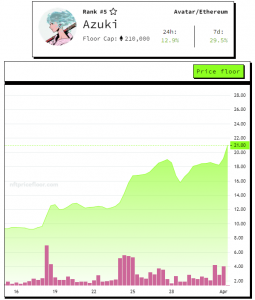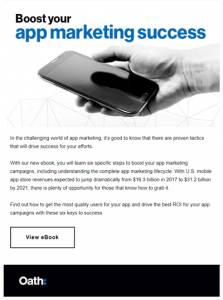
Tl;dr: The way to have creative business ideas is to live on the edge of the Overton Window.
“If you would be a real seeker after truth, it is necessary that at least once in your life you doubt, as far as possible, all things” – Rene Descartes
When Muhammad Ali died, he was lauded as a great American, a great athlete, a great man. Bill Clinton, Billy Crystal and Bryant Gumbel offered eulogies at his funeral. Mainstream news channels ran hours of coverage of his funeral procession.
The public sentiment about Ali was not always so fawning. In 1967, Ali had received a draft notice to fight in the Vietnam War.
He refused, protesting that: “Man, I ain’t got no quarrel with them Viet Cong … Why should they ask me to put on a uniform and go ten thousand miles from home and drop bombs and bullets on brown people in Vietnam while so-called Negro people in Louisville are treated like dogs and denied simple human rights?”
Appearing for his scheduled induction into the U.S. Armed Forces on April 28, 1967, in Houston, Ali refused to step forward. An officer arrested Ali and charged him with a felony.
The reigning heavyweight champion of the world, he was stripped of his boxing title and license.
At his trial, the jury ruled him guilty after only 21 minutes of deliberation. After an appellate court upheld the decision, Ali appealed to the Supreme Court. It took them three years to hear his case.
Arguably the greatest boxer in history, Ali was barred from the ring for the three years at the height of his physical prowess. Not only was he not allowed to box, most of the country saw Ali as unpatriotic and anti-American.
As he waited for his court date, the tide started to shift against the Vietnam War and the Civil Rights Movement gained momentum.
Bill Clinton, Billy Crystal, Bryant Gumbel and the rest of the world remember Ali so fondly, not in spite of his actions, but because of them. The heavyweight champion of the world to put everything on the line – his celebrity, endorsements, money, his prime years. His stance gave the both the anti-War and Civil Rights movement a sense of legitimacy.
His stance is now seen as brave and visionary. Many people like to think they would have done the same had they been in his position.
But what did Ali really accomplish? His sacrifice moved the Overton Window.
What is the Overton Window?
The Overton Window is the range of ideas that the public will accept. It’s primarily used in politics and media.
The window is “primarily defined not by what politicians prefer, but rather by what they believe they can support and still win re-election.”1
That is, in order to be electable, a politician has to constrain himself to ideas within the Overton Window.
So even if a politician is against gun control but his district is in favor of gun control, then that stance is said to be outside of his district’s Overton Window and in order to be elected he has to run on a pro gun control platform.
The Overton Window is different in any given area – the Overton Window for a politician in rural Nebraska is different from that of one in New York City and one in the whole of France.
Where an idea falls relative the Overton window is on a spectrum.

An unthinkable idea is something that falls so far out of the Overton Window as to be, well, unthinkable. As an idea gains support it moves from unthinkable to radical to acceptable to sensible to popular and eventually to policy.
Take the idea of racial and gender equality in the United States. 300 years ago it was unthinkable. Two hundred and fifty years ago, it probably would have been considered radical. Most of the framers of the Constitution supported an end to slavery but it was politically untenable so they didn’t advance it in their politics. Over the course of the 19th century it gradually entered the realm of acceptable, then it became sensible, and, eventually, it became popular.
In the 20th century, it became policy: The 16th Amendment gave women the right to vote in 1913 and the Voting Rights Act of 1965 prohibited racial discrimination in voting (in part thanks to Ali’s protest).
This is not to say that no one opposes full equality or that it has been completely realized, only that it is now thankfully well within the Overton window. A politician could not run on the platform of restricting people from voting based on their gender or race.
What is politically viable shifts over time.
The future lives outside the Overton Window
Now back to how this helps you come up with creative business ideas (or just good ideas period).
When it comes to your career, you want to try and live on the edge of the Overton Window, somewhere between radical and acceptable.
The mistake most people make is they think that today’s Overton Window will be tomorrow’s window and they fall too far inside.
Let’s look at a historical example.
In 1980, a 40 year old parent who grew up around successful lawyers says to his five year old daugher: “you should become a lawyer!” Law, at the time, was probably in the sensible/popular range. Law had just become an accessible career to a large swath of the American middle class as a Post-WWII boom had made higher education more attainable.
His daughter studied hard to become a lawyer. By the time she graduated, she was a dime a dozen. It’s only gotten worse.
Starting salaries for lawyers fell to $ 62,000 from $ 72,000 from 2008 to 2014, down 13%.
At the same time as salaries are falling, lawyers’ student debts are piling up. From 2008 to 2013 the annual tuition of law school went up by almost 70% for public law schools from $ 16,836 to $ 23,879 2
Individuals are paying more and more for something that’s going down in value.
Just as the Overton Window shifts in politics, so too in professions and industries. Law degrees are (November 23, 2016)’s news in the same way that the viability of an explicitly sexist or racist political platforms are relics of a bygone era.
“Let the Jews have that one”
In the 1920’s, investment banking, selling shares of companies going public, was the new field in commercial banking. None of the “respectable” banks like JP Morgan would touch it. It was considered unthinkable, uncouth.
The investment banking work was left primarily to the then-obscure Jewish firms: Lehman Brothers and Goldman Sachs. The gentile firms would sniff, “Let the Jews have that one”— snobbery for which they paid dearly in the twentieth century.3
By the 1980’s investment banking was the largest, most profitable section of corporate banking. Goldman Sachs leverage their 60 years of experience in the field to become the most powerful bank in the world
Many of 2016’s aspirational parents are nudging their 5 year olds towards investment banking so they can be part of the Big Investment Banking conference of 2033. Don’t bother, you missed it.4
Make no mistake, part of the reason the opportunity existed for firms like Goldman in the early 19th century was precisely because it was considered unthinkable or radical in the same way Ali was. If you went to a cocktail party of bankers in the 1920’s and told them you did mergers, you were most definitely not the cool kid.
One of the reasons radical career paths and industries have lots of opportunity is precisely because they are looked down on. None of my parents’ friends were impressed when I told them I moved to Asia to build a web marketing team to selling cat furniture on the internet. 5 At least within my circle, it was radical.
What is radical will be sensible. What is sensible will be commoditized.
When it comes to business and careers, there is one tweak that needs to be made to the Overton Window chart. Policy becomes commodity.
In the words of Harvard Professor Clayton Christensen, “The basis of product choice often evolves from functionality to reliability, then to convenience, and, ultimately, to price.”6
Over time, the margins of any industry or career erode. There was a point in history when it was a cobbler was a really profitable choice, but then mass manufacturing came along and it wasn’t so great to be a cobbler anymore. Shoes became a commodity.

Take the oil business as another example. Oil was a very good business to be in a hundred years ago. When Rockefeller started buying up oil refineries in Pennsylvania, it was a radical and very profitable thing to do.
The fact that is was both radical and profitable was not coincidental. It was profitable specifically because it was radical.
The only known source of oil on Earth was that one section of Pennsylvania. Many people believed that it was the only source on Earth and when it ran out, the industry was done.
It turned out there was a lot more oil out than anyone imagined and Rockefeller reaped the rewards for a radical bet.7
Over the last hundred years, the oil industry has gone from radical to commodity. Today, oil is highly regulated and low margin. Not the best business to get into.
How to make a $ 140 million product
There’s only one thing that we can say for certain about the future. It will be different than the present.
I don’t know for sure what will be popular or sensible in twenty years. But I know for a fact that whatever is popular and sensible today will be a commodity tomorrow.
If you pursue ideas and opportunities which are popular and sensible today, you are on the path to being commoditized. The history of the Pollock brothers offers a case study.
Jackson Pollock was one of the most influential painters of the 20th century. He had a huge influence on his field. In 2006, one of his paintings was sold at auction for $ 140 million.
His work went on to be commercially successful because, when he started, he was just outside the Overton Window. There was no one doing what he did. It was considered radical.
What would have happened had he done what was considered sensible or popular? We have a perfect case study, his brother Charles Pollock. Charles and Jackson both moved to New York to study under Thomas Hart Benton.
However, Charles continued to paint just like Benton, doing what was considered sensible. Benton was well respected and many people wanted paintings done in his style.
Jackson followed a different path.
First, he mastered Benton’s style. He gained a deep understanding of the history and skills in his field.
Once he had mastered the discipline though, he did not continue to emulate Benton. He moved towards something radical in his style.
People err on both sides of this spectrum. Some don’t master the fundamentals first, they try to innovate without a full understanding of where the Overton Window even is. If you’ve never written a book, don’t try to reinvent the genre. Figure out the best practices and copy them.
Others master the fundamental and then get stuck. They never dance to the edge.
In our quest for certainty, we guarantee failure.
If we quest through uncertainty, we generate the possibility of success.
If your business idea or career path is considered slightly radical, that’s a good sign you’re on the right track.
It doesn’t have to be radical in the Elon Musk sense. It can simply be radical for you. Writing a book was radical for me though not radical by any objective measure. Many people have written books before. The Overton Window applies to your immediate network. Taking a night class in programming or moving abroad to teach English may be radical.
Why SpaceX isn’t as special as you think
You don’t want to get too far outside the window though if your goal is business success. There is an ideal amount of innovation for commercial success. I think the ratio is about 90% copy, 10% radical.
Even SpaceX, arguably the most radical business to succeed in this century, is 90% the same as NASA, the organization that preceded it. 90% of the day-to-day work done at SpaceX is the same as what NASA was doing.
If you’re in unthinkable territory, you’re either completely wrong or too far ahead. For commercial purposes, the result is the same.
The people who were 100 years ahead of their time never achieved commercial success. Marshall McLuhan was a 1960’s media theorist in the unthinkable realm, who predicted the “global village” and coined the term “the medium is the message.”
His book Understanding Media, originally published in 1964, still reads like a book hot off the press and sent back from the future.
He was predicting the internet and the tribal effect it would create:
“Specialist technologies detribalize. The nonspecialist electric technology retribalizes.”8
“Specialist technologies” refers to the industrial wave we had in the 19th and 20th century. “Nonspecialist electric technology” means the internet (the word didn’t exist in 1964) and by tribalize he means that it sorts people by interest: there is the Paleo diet tribe, the Brazilian Jiu Jitsu tribe, the Manga tribe, etc.
That’s crazy!
He, of course, died mostly broke from what I can tell. The many people who read his work though, went on to found some of the most influential companies of the internet era. McLuhan was considered the “founding father” of WIRED magazine.
He was unthinkable. Those who took up his ideas were radical.

The Internet Lets You Step Outside of The Overton Window
Hindsight gives us clues about what’s next
It’s getting easier and easier to study the unthinkable in order to pursue the radical.
Two decades ago, it would have incredibly difficult for me to follow the career path I did. It seemed quite radical to me five years ago. It was only because of the internet that I even knew of the possibility.
The internet is based on information abundance as opposed to information scarcity. Take education as a single example. The reason universities were originally formed is because books were really expensive and hard to make. In the Middle Ages, there might only be 20 copies of a book in the whole world and so these cathedral-esque structures were created to hold the books.
Contrast that with the world we live in now. A student at Harvard has no greater access to information than a dropout in Bangalore with an internet connection.
Information abundance allows the opportunity to always find the dissenting point of view. The top 10 results on Google for some radical idea are just as far away as the top 10 results for something popular and sensible: one search.
What are you on the edge of?
I remember when my parents told me for the first time they were in the hospital cafeteria of a rural town in Mississippi and heard someone ask “have you heard of this Paleo thing?”
I had found it myself five years earlier and raved about how awesome it was. It’s now a huge industry.
At the time though, it was very fringe, just me and some other people on internet forums. However, the people that were into it were rabid about it.
What subcultures are you a part of that have rabid adherents? That’s probably a good sign it’s going to be big.
It’s best that you be a rabid part of it yourself. If you are, you will be scratching your own itch, solving a problem that you yourself have. That makes you a lot more empathetic and understanding of customer’s needs and makes it much easier to make business decisions.
If you’re wondering what your first product should be, you can just ask what product you yourself would want. That’s a lot cheaper than market research.
If everything were to come crashing down tomorrow, I would move to Vietnam and start a blockchain blog. Vietnam and the blockchain are both fascinating to me and seem the right amount of radical right now.
How To Have Creative Business Ideas: Study the unthinkable in order to do the radical.
Here’s a few places I try to hang out on The Overton Window:
Blogs and podcasts – Not all blogs and podcasts are radical, but they have the potential to be because they are small. In order for a story to get covered by mainstream media, a lot of people have to say yes. The correspondent, the editor, and the vice president all have veto power. So something has to be pretty far inside the window before they’ll cover it. Single author blogs or podcasts on the other hand only require one person to say yes. Stratechery, Slate Star Codex, and The Last Psychiatrist are recent favorites for me.
Books – Old books and fringe books tend to have the best radical ideas. I notice that the big ideas in mainstream books tend to get absorbed into culture efficiently enough that you can sort of get it without needing to read them. History books also seem particularly helpful because they give you a sense of how the Overton Window has shifted over time. Sapiens and The Master Switch are recent favorites.
Twitter accounts – If the internet is a global village as McLuhan suggested, then Twitter is the town square. Unlike Facebook and LinkedIn which let you keep tabs on people you already know, Twitter lets you keep tabs on people you’d like to know. Facebook is for people you used to know. LinkedIn is for people you know. Twitter is for people you’d like to know.
The Overton Window is the range of ideas that the public will accept today. The future lives outside the overton window
When it comes to your career, you want to try and live on the edge of the Overton Window, somewhere between radical and acceptable.
If you are too far inside the window, you get commoditized, just like the cobbler did. If you are too far outside the window, you’re never understood.
The most successful ideas are probably 90% like what existed before and 10% radical innovation.
The internet makes it easier to get outside the Overton Window, but you still have to be extremely deliberate: The Overton Window has a center of gravity to it.
To some extent, that’s ok. You don’t want to live entirely outside the Overton Window. You lose touch with what is commercially viable.
While good ideas come from outside the Overton window, they make money once they are inside, so you want to catch onto them right at the threshold.
The imperative to “live on The Overton Window edge” goes beyond having creative business ideas of course, it is a philosophy about how to live a good life and craft a just world. Ali’s example demonstrates that.
That’s not to say that it’s easy. The stances that matter never are.
Acknowledgments: Many of the ideas here are inspired or taken from the Breaking Smart Season 1 Newsletter.
Business & Finance Articles on Business 2 Community(148)









